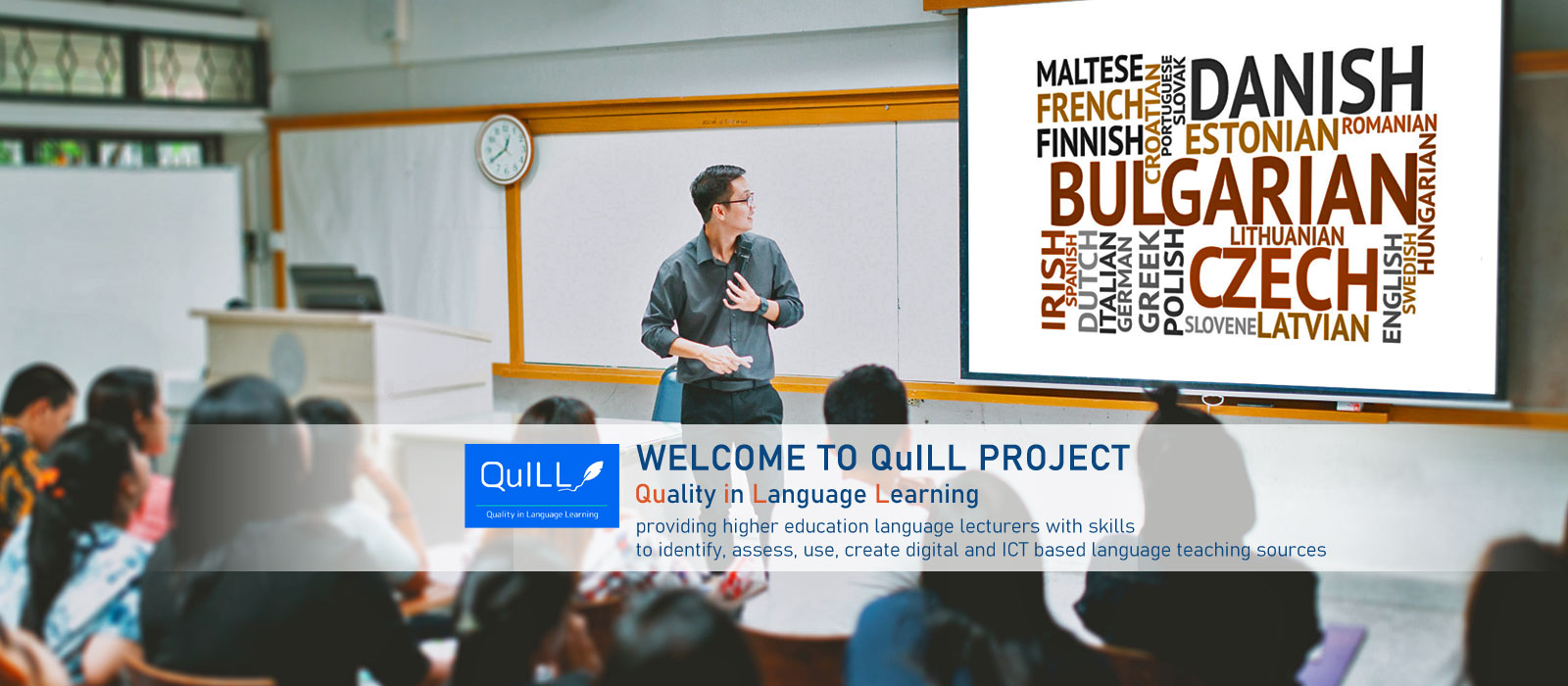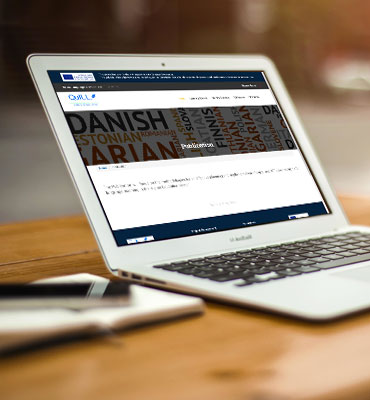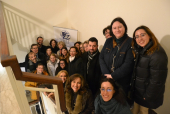The three project outputs all have great value for me. They are all available online and easily shared so that networking and the exchange of ideas are readily carried out. The teaching resources have an impressive breadth of titles and domain areas which can be applied to my teaching context - and I'm sure many others. There is ample room to adapt these resources too. As a lecturer in higher education, I am not presently directly involved in teacher training, but given my area of expertise is foreign language methodology, the training package allows me to reflect on my own teaching activities, and I could use these in conferences related to teacher education as well as in teacher-training courses in the future. The publication provides a solid overview of the principles and practices that underpin the QuILL as a whole and in many respects gives a flavour of each project partner's contexts and practices, and the challenges and possibilities therein. /Addressing the question of access and use of digital resources for language learning - specifically languages for specific purposes - and the crucial aspect of how to implement these in HEI. The teaching resources provide concrete guidelines and steps to do this, but are also flexible enough to be transferred to other contexts other than those in which they were validated. Further, making so many open educational resources available in one place (the website) provides a ready-made pool of resources to drawn on. This is why, in my opinion, it is crucial to maintain, add and adapt the website - and continue with its promotion and use.












